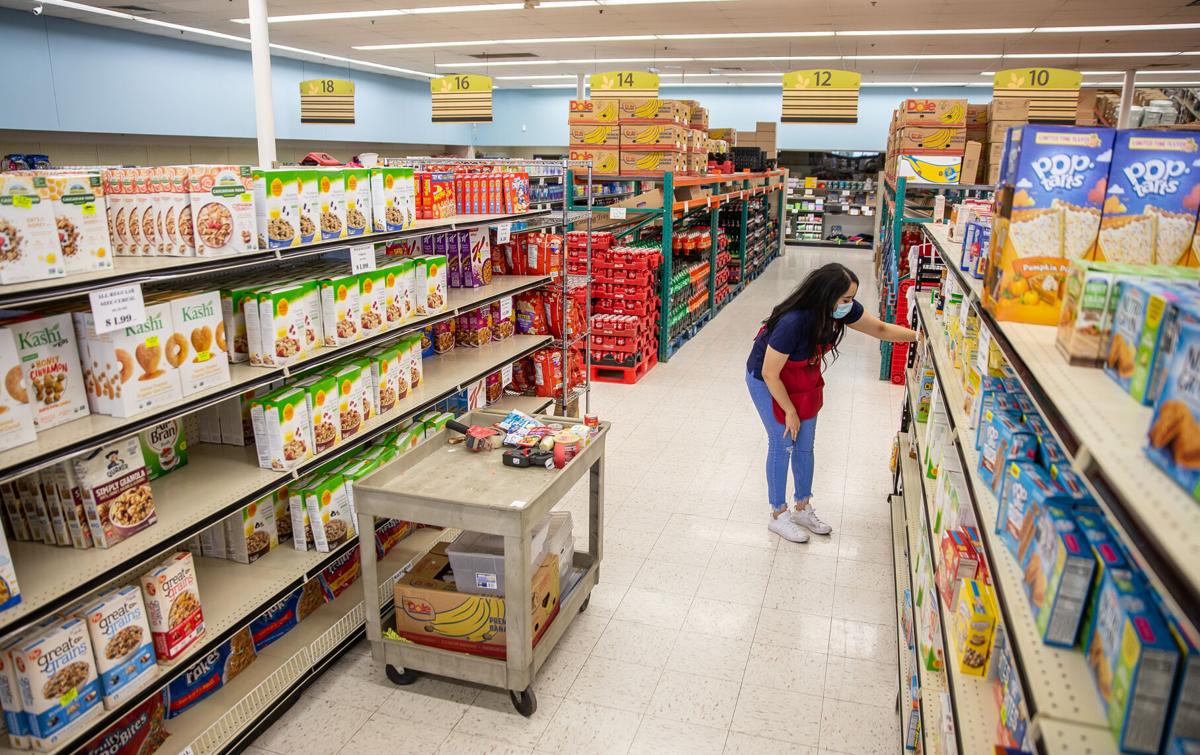PHOENIX — The question of whether Arizonans will have to continue to pay sales taxes on groceries is now in the hands of Gov. Katie Hobbs.
On a party-line vote, the state House voted Wednesday to overrule the current ability of cities and towns to charge a levy on the purchase of items for home consumption. The Senate already had given its approval.
But it remains unclear what the Democratic governor will do with the measure. An aide said the governor is reviewing the measure.
Earlier this year, she vetoed similar legislation to strip communities of their right to tax residential rentals. The governor said at that time she was concerned not only about the loss of revenues for affected communities but her belief that landlords might not pass on the savings.
That latter explanation may not hold as much water regarding food taxes, as the levy is broken out at the bottom of every grocery bill. Eliminating the tax would simply eliminate that line on the receipt and reduce the total accordingly.
The food tax raises about $161 million a year for cities that impose it on not just their residents but those who shop in their communities.
In opposing SB 1063, Rep. Lupe Contreras, D-Avondale, said this is about more than what he called the "pennies on the dollar" that shoppers would save. He said his constituents will end up feeling the effects when cities have to cut spending for the fire department, ambulance and police services
"That's when they're going to be impacted, when they need help," Contreras said.
But House Majority Leader Leo Biasiucci, R-Lake Havasu City, said foes are understating the impact of the taxes which are charged by some cities. He said eliminating the levy could save families $200 to $300 a year.
"To a lot of struggling families, that is the difference between putting gas in the car, the difference between taking their child to soccer, the difference in a lot of things that make our families work," Biasiucci said.
And Rep. Justin Heap, R-Mesa, suggested that city officials were being disingenuous in saying that any cut in revenues would hurt police and fire services.
"The cities should explain to their voters why police and fire are always first on the chopping block whenever there's a question about revenue," he said.
The fight also is political.
"It's pretty odd to me that Republicans are standing up to help people in the lowest income and middle class save on money when they buy groceries," said Rep. David Livingston, R-Peoria. By contrast, he said, those opposed to the measure "are helping the cities with taxes and maintaining taxes."
"I would think ... if it was to be a party-line vote, maybe it would be the other way around," Livingston said.
The vote did put some Democrats in a difficult position.
Rep. Alma Hernandez, D-Tucson, sought to put some distance between her and colleagues who said the levy is no big deal.
"I have an issue with us saying that a few hundred dollars in someone's pocket is not enough and wouldn't help," she said. "Even if we save someone $10 a month, that can make a huge impact."
Yet Hernandez decided to vote with other Democrats against the measure. Tucson does not tax grocery items.
Rep. Myron Tsosie, D-Chinle, agreed.
"I have constituents in my district who live paycheck to paycheck," he said.
"Every penny that they can save counts," Tsosie continued. "It doesn't matter whether it's one penny, two penny, one dollar, two dollars, that benefits my constituents."
But he, too, voted against the bill.
That discomfort by Democratic lawmakers reflects the decision that Hobbs will have to make: whether to save some money for those who have to pay the additional levy or side with the cities who contend that eliminating this tax would mean either cuts in services or the need to raise property or other taxes.
Hobbs said last month she supports looking at ideas "to make things more affordable for Arizonans."
"But I continue to be concerned about the impact on cities and especially public safety budgets," she said at the time.
The governor also has her own priorities for tax cuts.
She is pushing a measure to eliminate state sales taxes on diapers and feminine hygiene products. Her budget staffers said that would save customers about $40 million annually.
Arizona lawmakers eliminated the state sales tax on such purchases in 1980. But they left intact the ability of cities and towns to continue to do so to raise local revenues.
Get your morning recap of today's local news and read the full stories here: tucne.ws/morning





